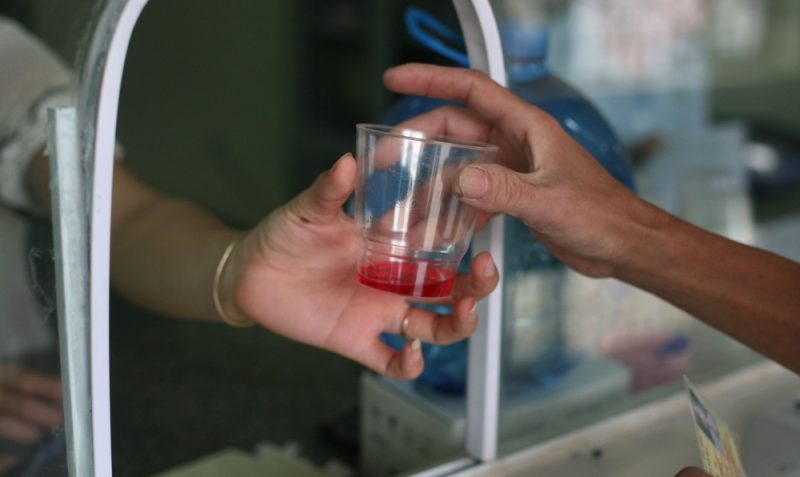How to integrate opioid substitution therapy and HIV care
 © Mr Than, SCDI, for Frontline AIDS
© Mr Than, SCDI, for Frontline AIDS
Integrating OST and HIV care can help increase access to services, but how do we integrate so it really works for people? By Dr Andy Guise.
By Dr Andy Guise, Research Fellow at the London School of Hygiene and Tropical Medicine and University of California San Diego, and formerly visiting research fellow at the Alliance.
Many communities of people who use drugs want access to opioid substitution therapy (OST). For people who use drugs like heroin it can help bring stability to daily life, reduce drug injection and improve health (although some people don’t want to use OST, or it isn’t suitable for them).
People who use drugs and are also living with HIV need access to HIV care, such as anti-retroviral treatment (ART). However, in many contexts, people who use drugs have limited access to OST and HIV care. Integrating these services can be a way to increase access, and can also help make HIV treatment more effective as OST supports adherence to ART.
But we need to dig a little deeper. Integration can mean many things. We need to understand what ways of integrating services will work for the various communities of people who use drugs that the Alliance works with. People living with HIV and using drugs may have a complex range of care needs, and care delivery must adapt to individuals and communities.
There is an ever-growing evidence base about OST and HIV care service integration. There are many studies documenting how integrated OST and HIV services are experienced by users, and exploring how they can best fit with people’s needs and lives.
The Alliance, in partnership with the London School of Hygiene and Tropical Medicine, University of California San Diego, the Tanzania Network of People who Use Drugs and University of Bristol did a systematic review of these studies. We gathered the evidence available, critically assessed it and developed conclusions on how we can go about integrating HIV care OST.
These are the main conclusions of that review:
1. Care in one site (‘co-location’) is best.
This is what we often think of when we say ‘integration’: a ‘one stop shop’. Going to one clinic and seeing one or a few providers there. And this is what people mostly want. It is convenient, it allows for trust to built with one person rather than having to disclose HIV or drug use status multiple times, and it avoids the hassle of referrals between different sites, which involves travel and therefore costs time and money.
2. But we need to consider and manage stigma
Having everything in one site isn’t enough if providers or other clients stigmatise people, or if care is set up in a way that denies privacy. ‘Directly observed’ approaches to care that involve care delivery through a window in full view of others are particularly problematic, and are the focus of many complaints. Without adjusting care to ensure privacy (e.g. consultations in a private, discrete setting) co-location of care is a problem.
3. How care is provided is just as important
It’s not just what you do, but how you do it. OST is often linked to efforts to control and ‘discipline’ clients, based on moral judgements of drug use as ‘bad’ or ‘wrong’. Some people welcome the ‘structure’ of providers setting rules, but others don’t. Many people want ‘patient centred’ and ‘harm reduction’ oriented care, which allows people to explore with providers how the care can best match their needs.
4. The evidence base is very limited
The available evidence concentrates on clinic-focused delivery of integrated care. Community support and community-based delivery to integrated OST and HIV care are little studied and therefore little understood beyond the small groups delivering, managing and receiving it. This is a big gap in the evidence base. The Alliance and its Linking Organisations can help responding to this by calling for, and developing, community-based support to integrated OST and HIV and carefully evaluating the interventions.
This article was written as the International HIV/AIDS Alliance, before we changed our name to Frontline AIDS.
Tags
Harm reductionHIV treatmentPeople who use drugs


